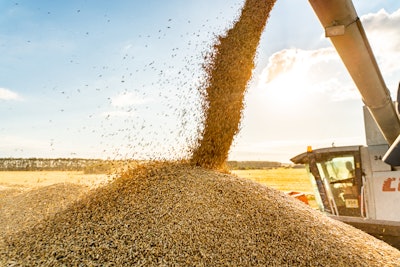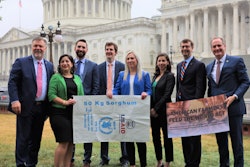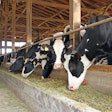
TheAmerican Farmers Feed the World Act of 2023was introduced to the U.S. Senate on September 20, earning praise from several grain-focused associations.
The intent of the act, which was introduced by Senators Mike Braun (R-IN), Jon Tester (D-MT), Roger Marshall (R-KS) and Pete Ricketts (R-NE), is to share U.S.-grown commodities while stopping the use of American taxpayer dollars in the form of vouchers to purchase food from U.S. agricultural competitors. The bill would also simplify the release mechanism in the Bill Emerson Humanitarian Trust so that it can be used efficiently and effectively, reducing any delay in reaching hungry people.
“American farmers have played a critical role in reducing hunger overseas for decades," said Senator Mike Braun. "The bipartisan American Farmers Feed the World Act would ensure that American-grown food is prioritized over foreign competitors for American aid programs around the world. It will also allow for more efficient use of funding so we can feed even more hungry people without any additional taxpayer dollars,”
U.S. Wheat Associates(USW) and theNational Association of Wheat Growers(NAWG) joined the broader agriculture industry in backing the legislation.
“It is exciting to see the Senate join the House in supporting the role of U.S. farmers in theFarm Bill’s international food aid programs,” said Peter Laudeman, USW director of trade policy. “The American Farmers Feed the World Act of 2023 offers an important rebalancing to ensure that Food for Peace remains focused on effectively delivering as much American-grown food to as many people in need as possible.
The legislation will empower American wheat farmers to share their harvest and contribute to the global battle against hunger, saidBrent Cheyne, president of NAWG and a wheat farmer from Oregon.
"Wheat, a vital staple grain accounting for approximately 20% of global calorie consumption, receives its highest quality from U.S. wheat farmers, making it an essential resource in nourishing the world," said Cheyne. "We've observed a shift away from utilizing American commodities in food aid programs over the years, which has resulted in diminished transparency, accountability and bipartisan backing.
"As Congress considers reauthorizing the Farm Bill later this year, this legislation provides an opportunity to revitalize the role of American agriculture in addressing global hunger. It underscores our dedication to providing food assistance to vulnerable populations while prioritizing our farmers ahead of foreign agricultural competitors."
TheNorth American Millers’ Association(NAMA) applauded the bill's move to the Senate, noting the use of American-grown commodities in international food aid has been a cornerstone of U.S. foreign assistance programs for decades. Over time, however, these proven programs have shifted to cash vouchers and purchasing commodities from international competitors, said NAMA in a statement.
Kim Cooper, NAMA's senior director of government affairs said the act "will restore these critical, life-saving programs to their roots of being accountable in-kind donation programs that alleviate world hunger with American-grown commodities, including milled products."
OnJune 22, Representatives Tracey Mann (R-KS-01), John Garamendi (D-CA-08), Rick Crawford (R-AR-01) and Jimmy Panetta (D-CA-19) introduced the act to the U.S. House of Representatives.





















